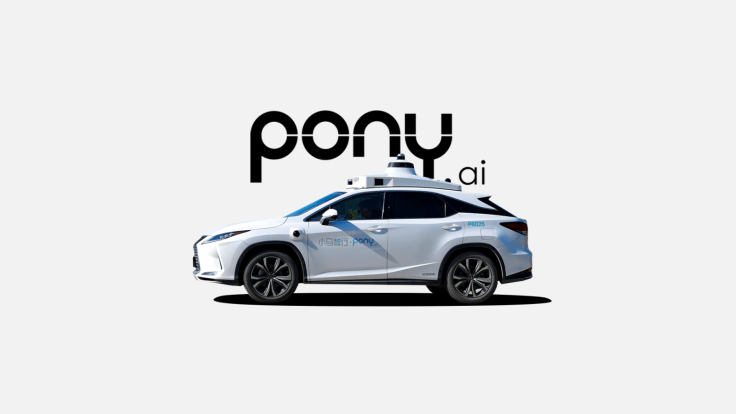Forget Tesla: This AI-Driven Robotaxi Stock Could Overtake It in the Real-World Market
Pony AI begins mass production of its Gen-7 robotaxis, signalling profits could arrive by early 2026 as it secures citywide permits in Shenzhen and expands globally.

A smaller, China-backed firm listed on the Nasdaq is emerging as a serious contender to challenge Tesla's dominance in the autonomous vehicle (AV) industry. While Elon Musk's Tesla remains the leading name in America's electric vehicle (EV) market, commanding a significant 43.1% share of EV sales in 2025, this newer player is rapidly gaining ground.
Musk envisions a future where self-driving Tesla cars, or 'robotaxis', revolutionise ridesharing worldwide. However, Pony AI's recent milestones and strategic expansion suggest it could soon take a leading role in the autonomous taxi sector.
Pony AI Secures Citywide Permit in Shenzhen
On 31 October 2025, Pony AI achieved a major milestone — securing the first-ever citywide permit to operate autonomous taxi services in parts of Shenzhen, often dubbed China's Silicon Valley. This permit allows Pony AI to deploy its seventh-generation robotaxis in phases across the city.
So far in 2025, Pony AI has outperformed Tesla in the stock market, with shares up 30.17% year-to-date compared to Tesla's 13.05%. The company launched its initial public offering (IPO) in Hong Kong on 28 October, with trading officially beginning on 6 November. These developments signal a promising outlook for the robotaxi stock, as real-world deployment and profitability loom on the horizon.
Growing Investor Interest and Strategic Alliances
Pony AI has attracted increased investor interest following a series of key milestones and strategic partnerships. Notably, its collaboration with Stellantis — the manufacturer of Chrysler, Dodge, and Jeep — aims to develop Level 4 autonomous vehicles for the European market. The plan involves deploying test vehicles first, with a full rollout across European cities expected by 2026.
Reports also indicate that ride-hailing giant Uber plans to invest in Pony AI's Hong Kong listing, following its previous Nasdaq investment in November 2024. Other investors include Southeast Asia's Grab Holdings, Singapore's Temasek, and Germany's Bosch. The IPO is expected to raise approximately $863 million, which will fund further autonomous vehicle development.
In September, Pony AI expanded into Singapore through a partnership with ComfortDelGro, the country's largest transportation service provider. The objective is to deploy autonomous vehicles for daily commuting. In addition to Singapore, Pony AI operates in South Korea, Luxembourg, and Qatar.
A Timeline for Growth and Expansion
Elon Musk announced during Tesla's third-quarter 2025 earnings presentation that the robotaxi service was expected to launch in 8 to 10 US metro areas by the end of 2025. However, regulatory hurdles have delayed the rollout. Meanwhile, Tesla plans to showcase its driverless Cybercab robotaxi model at the China International Import Expo (CIIE) in Shanghai, scheduled for 5-10 November.
Tesla has been losing market share in Mainland China, its second-largest market, to local competitors. Still, UBS forecasts that rapid AI advancements and fierce competition could lead to as many as 300,000 driverless taxis operating in Chinese cities by 2030.
Mass Production and Profitability Targets
In the first half of 2025, revenue from robotaxi services surged 157.8% year-on-year to $1.5 million. Dr. James Peng, Pony AI's Chairman and CEO, called the second quarter a 'significant milestone', solidifying its path toward large-scale production and deployment.
Mass production of Pony AI's Gen-7 robotaxi began two months ago, with over 200 vehicles already produced. The company is on track to reach 1,000 units by the end of the year. Although Pony AI has yet to turn a profit, CFO Leo Haojun Wang stated, 'The company should hit a major profitability target at the end of 2025 or early 2026 at the latest.'
A New Leader in Autonomous Mobility?
As Pony AI accelerates mass production and expands globally, it appears poised to challenge Tesla's leadership in autonomous taxis. With citywide permits, strategic alliances, and significant capital raised, the China-backed firm is positioning itself as a serious contender in the future of urban mobility.
While Tesla continues to push forward, regulatory delays and market share losses in China highlight the rapidly evolving landscape. Pony AI's real-world growth, backed by substantial investments and technological advancements, suggests it could soon take centre stage in the autonomous vehicle revolution.
Disclaimer: Our digital media content is for informational purposes only and does not constitute investment advice. Please conduct your own analysis or seek professional guidance before investing. Remember, investments are subject to market risks, and past performance does not guarantee future results.
© Copyright IBTimes 2025. All rights reserved.





















